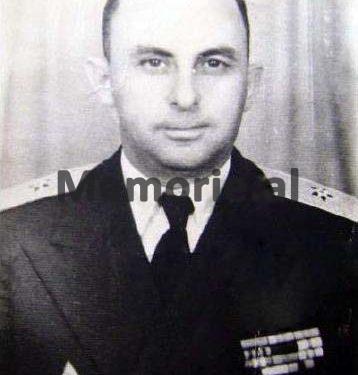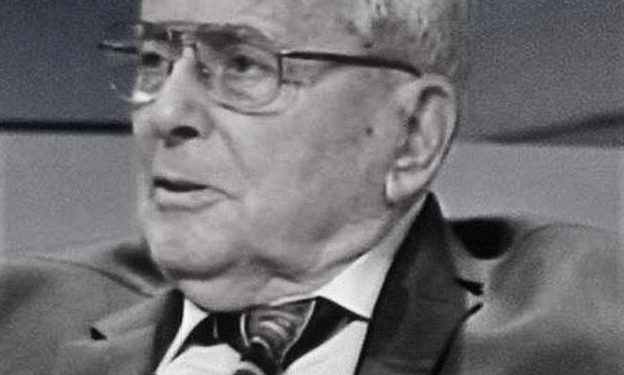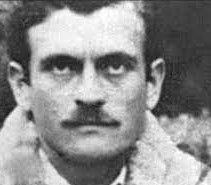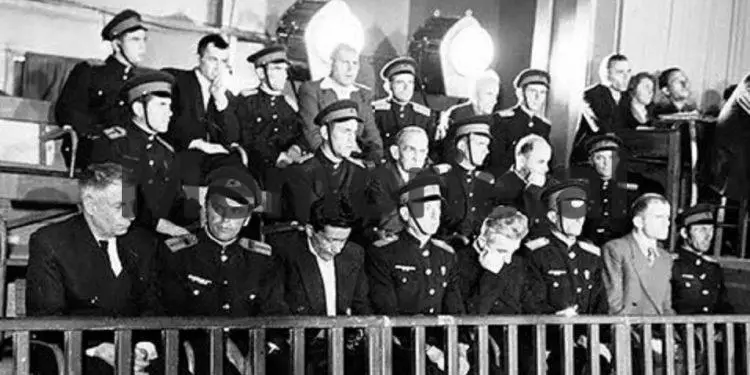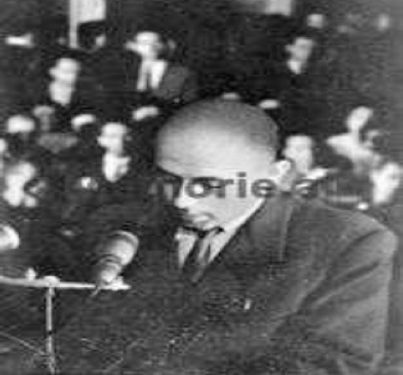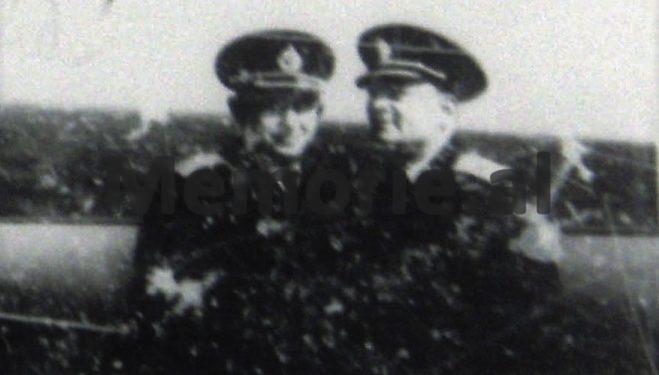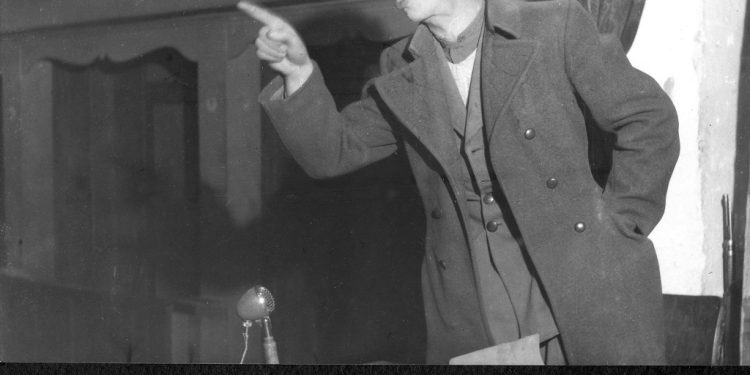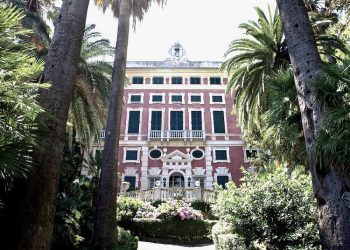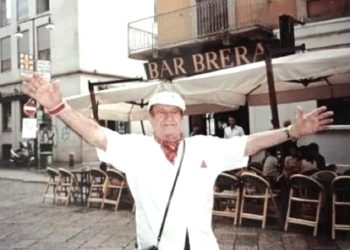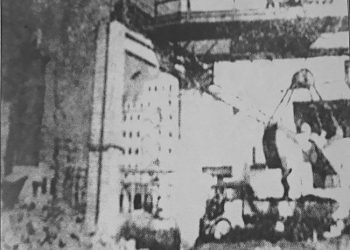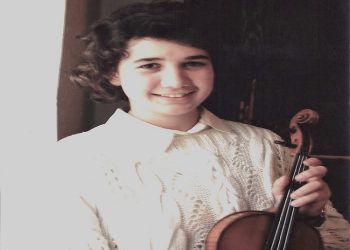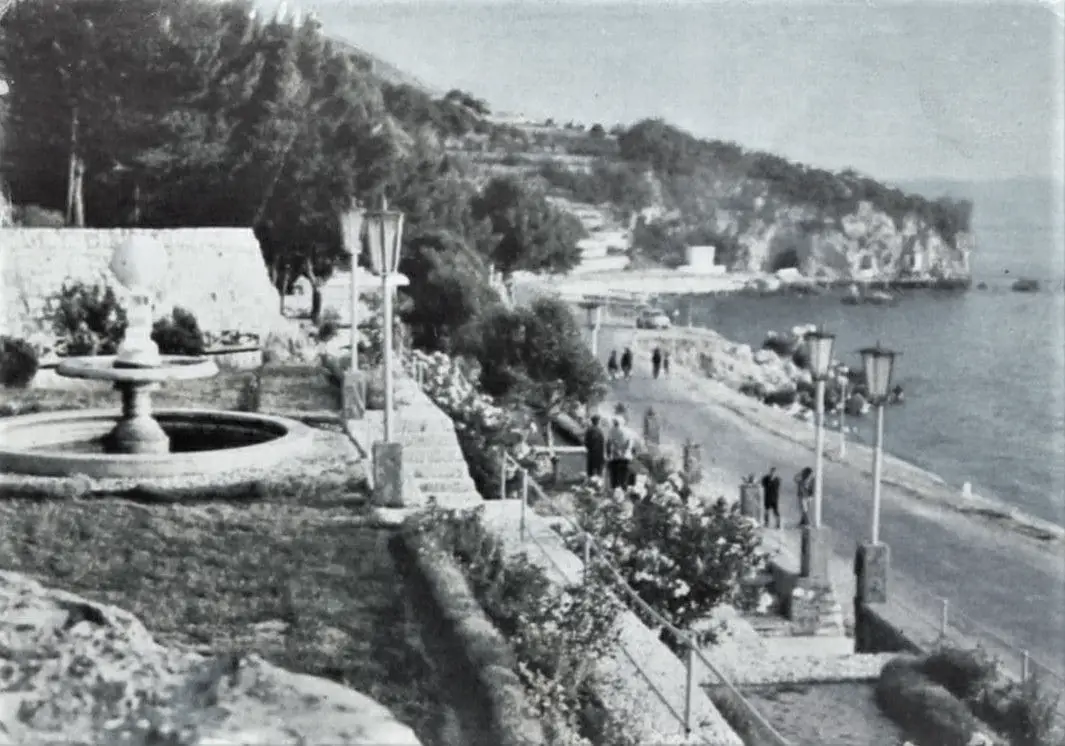From Agim Musta
Part sixteen
Memorie.al / On the fourth anniversary of the passing away of the well-known historian, researcher, writer and publicist Agim Musta, (July 24, 2019), former political prisoner, his daughters Elizabeta and Suela, gave him the right to exclusivity for the publication, by the online media Memorie.al, of one of the author’s most prominent publications, such as the ‘Black Book of Albanian Communism’. This work contains numerous data, evidence, facts, statistics and arguments unknown to the general public, on communist crimes and terror in Albania, especially against intellectuals, in the period 1945-1991. The publication for the first time of parts of this book is also the realization of one of the bequests of the historian Agim Musta, who, from the beginning of 1991 until he passed away, for nearly three decades was engaged with all his powers, working to raise collective memory, through book publications and publications in the daily press. All that voluminous work of Mr. Agim Musta, concretized in several books, is a contribution of great value to the disclosure of the crimes of the communist regime of Enver Hoxha and his successor, Ramiz Alia. A good part of the publications of Mr. Agim Musta, is also translated into English. Thanking the two daughters of the late Musta, who chose Memorie.al, to commemorate their father, from today we are starting the publication, part by part, of the “Black Book of Albanian Communism”.
Continues from last issue
-Portraits of fellow sufferers-
(1945-1991)
- “Romania”
The door to the camp opened and a tall sparrow flew in. It was bone and skin, with some big sky-blue eyes, icy eyes, that looked as if they were confused. The cheekbones looked like two bare hills. His hair was half white, half gray. A large mouth, with wrinkled lips, slightly open, allowed distinguishing several large and rare teeth, like mileage stones. He was dressed in a tattered cloth suit, which was not sold in our stores. He stood in the middle of the camp yard with a torn blanket under his arm, moving his long thin fingers constantly, not daring to take a step further. Not far from him, dozens of prisoners looked at him curiously. No one approached to greet him, as usual, with the words: “Brother, where did we get you? Don’t be upset. He who found you, found thousands of others before you and will find others after you”!
Suddenly, a voice was heard, which cried louder: “Ohh, Romanian! They have beaten him inside”! It was Bashkim Kina, a prisoner from Elbasan, who knew the newcomer. They had worked together at the oil factory. Driven by curiosity and humanity, I told the Union to take the Romanian and bring him to me for a coffee. Union approached him, greeted him, shook his hand and headed towards me with him. We sat on my mattress, where many others gathered. “Where do we get you, my friend?” – asked Hamdi Fallani, an old prisoner from Drashovica in Vlora, whom we called by the nickname “Noksani”. “Romanian, from Bucharest, my name is George Nikolau” – he answered in a distorted Albanian and extended his hand to take a cigarette offered by a prisoner. “And you were lacking, O Romanian. We have plenty of Greeks and Yugoslavs”, Hamdiu continued. Meanwhile, the Union had made the coffee and put it in front of “Romania”. He drank it with a gulp. “After being a big coffee pot,” said one prisoner. Photo Lezoja, placed in front of him a large loaf of bread with some olives, in a box lid. “How much have you been punished”? – I asked her. He didn’t answer me verbally, he showed me all 10 fingers. “What did you want in Albania, you old man”?! – said “Noksani”
The Romanian could not answer, because his mouth was full of bread, but he put his index finger on his cheeks, to say that the head was to blame. “No, my friend! It was not your head, but your feet that brought you to this cursed place” – said a prisoner. “Romanian” did not react and continued to eat greedily. “How much did the investigator do?” – I asked him. He opened his six fingers again and showed them to me. – Nothing. 6 months?! “I did 26 months and night and day, put a mace”, – said Hamdiu. “Did they shake you a little at the investigator”? – asked Robert Bishqeni. Again he did not speak; he stretched out his hands and showed the marks of the handcuffs that were left on his skin. “After dealing with Thanas Cak”, said Bashkimi, “torture with bracelets is his favorite method” “Romanian” nodded. “You worked in the circus as a pantomimist?” – Merkuri asked him with a smile. “No, aircraft mechanic” – he said and chocked the last bite of bread with the olive seed. I wanted to ask him why he had come to Albania. When had he come? What charges had he been convicted of. Did he have a family, etc., but it didn’t seem to me right away suitable. With chance and tact, I would learn them all. Meanwhile, the camp teller, Kujtim Pela, shouted to the dome of the sky: “Get the bread pans”! I gave him an aluminum plate, I didn’t have a spoon.
The “Romanian” surrounded the Union to get the potato soup and when he got it, he didn’t wait to find a spoon, but gulped it down like he was drinking a glass of beer with ex. a straw mattress and two torn blankets. After two days he came to my place and very timidly asked me to give him a coffee. I did and invited him to sit on the mattress. We lit a cigarette and in silence we were enjoying warm coffee. Without asking him, he started telling me in broken Albanian with a Romanian accent. “Albanian grandfather from Berat. Went to Romania at the time of Turkey. He lived 90 years and died in 1930, when I was 10 years old. He was a carpenter. The father also had this profession, but he was killed by the bombing in June 1944. My mother was Romanian, Moldavian. He has been dead for several years. My wife is Bessarabian, from Jashi. I also have a daughter who is studying engineering. My grandfather, who loved me and I loved him very much, often told me: Georgiu, don’t forget that Albanian blood flows through your veins. Don’t forget this as long as you live!
And I never severed relations with the Albanian diaspora in Bucharest. One day, at the house of a friend of mine, of Albanian origin, I met an employee of the Albanian embassy in Bucharest. The clerk was quite enthusiastic about this recognition and extended a familiar invitation to me to visit the embassy on the occasion of November 28-29. I gladly accepted the invitation and went. Many guests of Albanian origin were waiting. Before we left, the clerk made me an appointment, at one of the most luxurious restaurants in Bucharest. I went at the appointed time. I found the “clerk” sitting in a booth and with his hand in front of me; he invited me to his table. After asking me about the usual things, he immediately changed his tone and struck a formal pose. ‘Listen Georgiu, – he told me – all the People’s Democracies have betrayed, they have become revisionists. Only Albania in Europe and China in Asia carry the flag of communism. As an Albanian, it is up to you to protect Albania and fight for it. We want you to help us. We won’t let him go without rewarding him’ – and he tried to dissuade me, looking me straight in the eye. After a heavy pause, he continued: ‘I ask this in the name of the common Fatherland, will you help us? How do you say? “And what can I do? – I answered. – I don’t understand, how can I help you”?!’No big deal. For example, distributing propaganda material in enterprises, departments and institutions. For now, nothing more’. And he took a very formal pose. While I was drinking my glass of beer with caviar, the embassy ’employee’ took out of his black bag a declaration form written in Romanian and Scythian and put it in front of me to sign.
‘Write your full name and sign’ – and took his gold-plated fountain pen from his inside jacket pocket. The declaration was an act that I pledged to work for the Albanian Security. Georgiu, don’t sell yourself cheap, I thought, pen in hand, and I asked him in a low voice: ‘And what will the price be’? To begin with, you have 50,000 lei, then everything depends on the work you will do. Okay, he told me, smiling triumphantly. I agreed and signed the statement. He quickly opened the bag and counted out 50,000 lei. Then he took out from a secret pocket a packet of tracts written in the Romanian language and ordered me to immediately put them in the inner pocket. He hurriedly took the signed statement and put it in his bag. He stood up and, giving me his hand, said in a low voice: ‘Success, George Nikolau’! – And walked away quickly. I remained at the table, clutching the 50,000 lei in my pocket. I called the waiter and ordered champagne. I had decided to become a cork. After a few days, I started distributing tracts. Suddenly, I dictated that a civilian was following me from behind. I realized that I had been discovered. Out of fear, I burned the remaining tracts. The next day, when I was getting ready to leave the house, a car with Security officers arrived. They searched my apartment and took me away. In one of the sections of the Bucharest Security Service, an investigator in civilian clothes was waiting for me. “Whom do you serve?” the investigator told me, squeezing my jaws. I don’t understand, I replied as if confused. “You don’t understand,” he said and took a step towards me. ‘So what are these’, are shaking some tracts in front of my nose. ‘How much did they pay you’?
Dirty spy! I am not a spy, I am Albanian, I answered. He punched the table. You and your father were born and raised in Romania. Haram saw the bread you ate here! And he ordered to take me to the cell. The next morning, I was taken back to the investigator’s office. There was also a major of the Security. “You,” said the major, “have distributed tracts for the account of Albania, tracts with a hostile spirit towards the socialist camp, where Romania is also a part.” For this you are sentenced to prison. Yes, we thought differently. We decided to leave for Albania. Maybe there they will reward you and make you a minister’, he added ironically. Accompanied by an officer and a policeman, I was urgently sent to Constanta. They put me on a ship that was going to leave at midnight for Albania and locked me in a cabin, under the supervision of a sailor, who was apparently a Security man. After 4 days, we arrived in Durrës. The vice-captain handed me over to the Port Police, along with a file. After 1 hour, they took me with “Gas” and took me to a secret house of the Security, in Shijak. They kept me there for 1 week. I was constantly visited by Security officers, who came from Tirana, but they ran away disillusioned. After they realized I didn’t have any “peco-groso”
At the end of the week, I was informed that I was assigned to work as a mechanic at the oil factory in Elbasan. After a few months of staying in Albania, I realized that the situation here was worse than in any other country in Eastern Europe. I couldn’t stand it. I spoke. They arrested me and beat me inside. The chief investigator of Elbasan, Thanas Caku, every time he interrogated me, he shook my hands with irons and shouted at me saying: ‘You are a spy, what mission have they sent you on?’ Who sent you? Speak, you scoundrel’ – and shot me wherever he could. I’m your spy, you worked well for me. He was furious and threatened me that I would die in jail, like a dog, if I did not affirm that I had been sent as an agent of the Soviet KGB. Oh god! Don’t endure this misery, I said to myself and decided to endure any torture, but I wouldn’t say the cure of the cure with my mouth, a peace that the executioner, Caku, was looking for. When they saw that nothing came out of what they were looking for, they changed the plate and told me that I had insulted Enver Hoxha, the Party; I had talked about economic deficiencies and other such nonsense. I told him, I told the truth. You lied to me!
You took me by the neck with 50,000 stinking lei. You destroyed me and my family, God forbid! Within two days they filed a report accusing me of agitation and propaganda. After two weeks, they brought me to court. They had brought 3 witnesses, whose faces I didn’t even recognize. They said what the investigator had ordered. They had threatened them with money and prison if they didn’t say what they wanted. They sentenced me to 10 years in prison and laughed as if I had been sentenced to 10 days. Ten years! A life, why? I asked to be returned to Romania, but the prosecutor, with a cynical smile, answered me: ‘Serve the sentence once, and then we’ll see what we can do’. Now the river took me and God only knows how it will be”. His icy blue eyes narrowed and his entire appearance froze, as if he had been struck by a strong electric shock. I was scared and felt very sorry for him. I thought it might calm him down by giving him something to eat. I placed a pot of grosz and a large loaf of bread in front of him. To my surprise, he refused to eat. Terrible memories had cut his appetite. I gave him a cigarette. He inhaled the smoke with all the strength of his lungs. He got up to run away. I begged him to take the pot with him. He took it lazily and thanked me with all his heart. He left like a long shadow, hunched over, pot in hand.
- Kosta Fili – “Captain of Asfalia”
I had heard many things about Costa Fili. I had seen him filmed, when he appeared as the main witness in the trial of Rear Admiral Teme Sejko. In those days, Kostas’ name was mentioned in all cases at the ghost court hearings. Costa Fili! Who was this “palikar” who became the “hero” of the day in those May days of 1961? The chance brought me to know him personally in the forced labor camp of Laçi, in 1965. He had an average height of an athlete, half blond and blue eyes. He was nimble and made every move precise. He spoke little and listened a lot. He was quite careful in dealing with people and tried to avoid acquaintances with fellow sufferers. He socialized only with 2-3 fellow villagers and no one else. Coincidence brought him to sleep close to each other, and when he learned that I had been a teacher for several years in Saranda and Konispol, he began to approach, but always with reserve. Even at night, when he slept, the rabbit slept. He often got up and stood on the bed smoking a cigarette. Out of the corner of his eye, he observed all around and carefully controlled every movement. It was clear that he was guarded like the devil by incense, from some sudden death blow. On his shoulders, he carried many sins. One day he showed me the photo of the girl who was attending the Pedagogical School in Ioannina. It was a beautiful 14-year-old girl, with a rather melancholy face.
He did not tell me anything about the contents of the letter he had received from the family. I learned that his wife and children were in Ioannina. He had escaped to Greece, from his hometown of Mursi, in 1953, at the age of 23. After he had performed military service on the border in Yugoslavia and for special “merits”, he was promoted to non-commissioned officer. In Ioannina, he worked as a bus conductor, on the Ioannina-Athens-Ioannina line. At the beginning of 1959, Mr. Muzina, a very rich merchant, who lived in Athens, fled Albania to escape the persecution of the communist regime, consults with the lawyer Mr. Papadhima, who also fled to Greece, but for those motives of Mr. Muzina, how he could retrieve a quantity of gold that he had buried, near a willow in his garden, in Muzina of Delvina, during the Second World War. Mr. Papadhima, after a few months, informs Mr. Muzina, that he had known many resourceful boys, escaped from Albania, who worked in Greece, menial jobs and who might be ready to carry out the mission of Mr. Muzina, against a reward.
Mr. Muzina happily approved the lawyer’s plan, as he considered the buried money lost. Among many candidates, Mr. the lawyer preferred Kosta Fili from Mursia, Mihal Licin from Leshnica and Vangjel Zahon, from Alikoja. All three from the district of Saranda, who knew well the terrain where they would operate. The meeting with the aforementioned took place in the villa of Mr. Muzina, in the presence of Mr. Papadhima, where an agreement was drawn up for the distribution of gold, at the end of the operation. It was decided that the action would be carried out in the greatest secrecy. The three friends would be equipped by Mr. Muzina, each with a pistol, before they crossed the Albanian border. Mr. Muzina would wait for them in Janina for a few days. The border was crossed in December 1959, near the town of Sminec, where the snow layer was over 1 meter.
After 7 hours of arduous journey, the three friends arrived in Leshnica village, where they took shelter at Mihal Lici’s aunt. The next day, they had decided to go to Muzina, to get the buried gold, but Mihal’s aunt, after an hour, when the three friends had stayed at her house, went and reported it to the border department and they fell like rats in a trap. They made no resistance, but raised their hands, hearing the volley of guns, in the direction of the house and called; “Surrender, because you are surrounded”! They were taken to the Battalion Command in Theollogo, with their hands tied behind their backs and black bags on their heads, so as not to be recognized on the way. The calls to the Saranda Department of Internal Affairs and the Ministry of Internal Affairs began to ring. Questions were asked and orders given in anxious voices. Finally, the Ministry of Internal Affairs ordered the three saboteurs to leave urgently for Tirana, with extraordinary security measures. Special cells and “special” treatment were prepared. The intensive investigation began. General Nevzat Haznedari, threw himself into the work with unrestrained momentum.
Already in the first days, the 3 saboteurs showed their identity, the purpose of coming to Albania and the sketches, with which Mr. Muzina to find gold. The Ministry of Internal Affairs urgently launched a special group of officers in the town of Muzina, who returned to Tirana late at night, together with the gold found. Although the finding of gold clearly proved the depositions of the “3 saboteurs”, the investigators were persistently looking for other depositions, for their “top secret” mission of coming to Albania.
From the torture used by the investigating executioners, Vangjel Zahoja goes crazy, while Mihal Liçi turns into a living corpse and ends up in the hospital. Kosta Fili, to escape the fate of his friends, agrees to play whatever role they would assign him. After Nikita Khrushchev’s visit to Albania, in May 1959, who declared at the Rinas airport, that he came to Albania as the good housewife, to wipe the dust from the shelves, Enver Hoxha’s idea was reinforced every day that; The Soviets had begun to suspect him and could prepare his overthrow, with the help of high-ranking Albanian military personnel trained in the Soviet Union. Dictator Hoxha, began to draw up in his sick brain, a project plan to give a blow to the ranks of the army, in order to intimidate the major officers. Already in the first months of 1960, he presented the ideas of this plan to his friends Mehmet Shehu and Hysni Kapo, agreeing that the “Sacrifice” would be Rear Admiral Teme Sejko, followed by a group of officers in the Navy, in Army and party cadres.
For the implementation and detailing of this plan, the Minister of Internal Affairs, Kadri Hazbiu and his three assistants were charged; Rexhep Kolli, Aranit Çela and Nevzat Haznedari. The detailed plan, at the beginning of May, was sent to the dictator for approval, who, after approving it, gave orders for the strike to be lightning-fast and for the Border Guards and Security Forces to be put on standby No. 1, to created psychosis in the people, that something was being prepared by external and internal enemies against Albania. On July 1, 1960, Rear Admiral “Conspirator”, Teme Sejko, was arrested, together with 100 other people, picketed earlier, by the bodies of the Ministry of Internal Affairs. Against these unfortunates, “Beehives”, invented by the diabolical mind of the executioner Nevzat Haznedari, were put to use. For many months, the “Captain of Asfalia”, Kosta Fili, learned by heart from the Security officers the role he would play in the dramatic trial of Teme Sejko.
He was treated with special food, was introduced by photographs to the persons against whom he would testify, learned the possible questions that could be asked by the defendants, and the answers he would give them. The trial opened at the end of May 1961, in the “Brigada” cinema, surrounded by three cordons of police and Security officers. There were also two fire engines on full alert. From the Security measures, this trial exceeded all the trials that were developed until then in Albania, by the communist dictatorship. The hall was entered only by invitation, which had been allocated to the senior cadres of the departments, the Army and the Security. Members of the diplomatic corps accredited in Tirana were also invited.
The prosecutor of the trial was the well-known executioner of the Albanian people, Aranit Çela, and the president, Shuaip Panariti. The two main detainees, Taho Sejko, the former editor-in-chief of “Zëri to Populli” and Hajri Mane, the former captain of Bbulimi, were not brought to the dock, because they had died during the torture in the investigator. The main defendants were: 1. Teme Sejko (Admiral), 2. Abdyl Resuli (lieutenant colonel in the army). 3. Tahir Demi (chairman of the Executive Committee of Elbasan), 4. Sami Murati (former secretary of the Party Committee in the district of Saranda), and others. The 65-year-old gastor, Jonuz Purizo, the headman of Vërvë village, during three regimes, was not missing in the case of the accused, which gave this tragic trial and pronounced comic colors.
In the indictment read by the prosecutor, it was said that the State Security bodies, led by Comrade Enver’s “orders”, had discovered one of the most dangerous conspiracies against the Party and the People’s Republic of Albania, prepared by the Yugoslav UDB , the Greek monarcho-fascists and the Sixth American Fleet, deployed in the Mediterranean, had been preparing for years this bloody plan “to overthrow” the popular power in Albania and the Albanian people would drown in a river of blood, but thanks to vigilance of Security and the Party, headed by Comrade Enver, the plot failed and the conspirators went to the dock. The entire indictment was a pale copy of the indictments of the Stalinist trials held in Moscow, during 1936-1937, composed entirely of slanderous fictions, which no one but fanatical and ignorant communists could believe. The only foreign journalist who was allowed to attend some of the court hearings was a Polish journalist, who wrote that: “The trial against Teme Sejko was a black suit, sewn with white feathers”.
This determination was also broadcast by Radio London, during its comments in the Albanian language. All foreign radio commentators, journalists, specialists on Balkan issues and sound opinion in the country, said that this trial was a fabrication and invisible arrows were directed against the Russophiles, warning them that; this is how all those who would dare to rise up against Enver Hoxha would suffer. Kosta Fili, with the rank of “Captain of Asfalia”, smartly dressed, with a tie and a French shirt, in every séance, testified against the defendants, about the meetings he had with them, as the coordinator of the “Conspiracy”. He talked about the contacts with Panajot the Elder, Haki Rushit, Teme Sejko, Hajri Manen and others, for the orders of the Greek, Yugoslav and American generals, the coordination of the conspirators with the foreign headquarters, for the coded messages that had been transmitted and others that Profka had taught them by heart, by the Security investigators, throughout the time of his isolation.
The wonder was that everything that Kosta deposited against the defendants, they approved without any hesitation, even some, with the statements made, made their miserable position more difficult. The lawyers were instructed that the defense of the defendants would not exceed 15 minutes and would be very discreet. The well-known lawyer, Koço Dilo, told me about this trial, that he was quite worried for many days, because he had used the word “unfortunate” during the defense for a defendant. The trial sentenced seven defendants to death, including: Teme Sejko, Abdy1 Resuli, Tahir Demi, Ali Arapi and four others; heavy prison sentences. After this trial, the Military Court of Tirana sentenced to death many “conspirators” related to Teme Sejko, such as the Major of Discovery, Nevruz Bejleri, Refat Hamit, Bego Plaku, Rushan Mullain, Dalan Dalani, not to mention the innocent ones. In all these trials, Kosta Fili was a witness for the prosecution. He himself was sentenced to death, but when he took over the role, the sentence was commuted to 25 years in prison. With fear in his heart and conscience killed even today he lives in Gumenica, Greece, lonely, sick and silent as a fish.
The synthesis of this fictional trial can be summed up with a sentence said by the defendant Jonuz Purizo, when the trial prosecutor Aranit Çela read the indictment against Jonuz Purizo, among other things, it was said that Jonuz had been four times in Greece, as an envoy of Teme Sejko’s group and had meetings with General Sarafis, the head of Greek Counter-Intelligence and the vice commander of the US VI Fleet, Admiral Johnson. Asked by the president of the court, Shuaip Panariti, if he accepted the indictment, Jonuzi replied that the indictment is not correct, since he has been to Greece 6 times and not 4 times, as the prosecutor said. Shuaip Panariti, irritated by Jonuzi’s words, says to him: “What are you saying, Jonuz, fake?”?! And Jonuzi, a semi-illiterate old man, replies: “Yes, these are all fake, Mr. Chairman.” Hilarity permeated the hall with selected guests and no one thought about the real tragi-comedy, which was played at the “Brigada” Cinema in Tirana, those days of May 1961.
Note: After the court decision against Admiral Teme Sejko, who was promised that after the trial he would be sent abroad, he was taken from prison by the heads of the Security Rexhep Kolli and Nevzat Haznedari and in a secret base, tortured until he died. Memorie.al
The next issue follows




